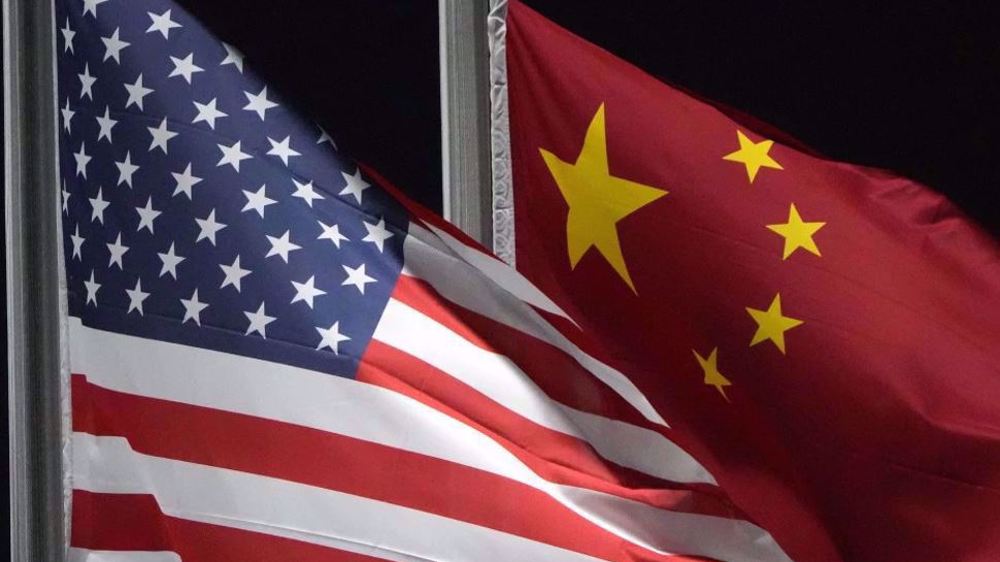US says China aggressively expanding into South China Sea
The US intelligence chief accuses China of expanding its outposts in the South China Sea in an “aggressive” effort to exert sovereignty.
Speaking at a Senate Armed Services Committee hearing on Thursday, Director of National Intelligence James Clapper voiced concern over land reclamation activities in the South China Sea that could further escalate tensions between China and its neighbors over disputed islands, The Associated Press reports.
“Although China is looking for stable ties with the United States it’s more willing to accept bilateral and regional tensions in pursuit of its interests, particularly on maritime sovereignty issues,” Clapper said.
Senator John McCain, Republican of Arizona and the committee’s chairman, displayed satellite imagery showing expansion of the Chinese occupation of Gaven Reef in the Spratly Islands, where China has had a troop and supply garrison since 2003.

McCain said China’s expansion there could allow it to employ weapons, including anti-air capabilities.
In response, Clapper characterized Chinese activities in the South Chinese Sea and its oil drilling near disputed islands as a “worrying trend,” but said China was still in a construction phase and it was unclear what weaponry and forces it would deploy there.
Chinese Foreign Ministry spokesman Hong Lei said Friday that the country’s activities in the South China Sea are “reasonable, legitimate and legal” and that Beijing has shown “restraint and responsibility.”
Beijing claims the South China Sea in its entirety, while other countries including the Philippines, Japan, Vietnam, Taiwan, Malaysia, and Brunei Darussalam also have claims to the area and are in dispute with China.

China strongly objects to what it considers US meddling, accusing the US of destabilizing the Asia Pacific by strengthening its military alliances and sending more ships, aircraft, and troops to the region.
Washington stresses it has a national interest in the peaceful resolution of the disputes in the region.
The US Navy announced Thursday that it had been flying its most advanced spy aircraft out of the Philippines to conduct a three-week surveillance mission over the South China Sea.
The P-8A Poseidon had been deployed in the Philippines until last week, making more than 180 flight hours over the South China Sea.
US military officials have grown increasingly concerned in recent months about China's military development. The Pentagon has begun a major push to maintain US military technology dominance amid rapid advances by China and Russia.
HRJ/HRJ

Trump, Zelensky hold 'productive' talks ahead of Pope's funeral in Rome

No talks on tariffs between China, US: Chinese Foreign Ministry

Pakistan carried out US ‘dirty work’ for 30 years: Defense minister
Iran declares holiday in Bandar Abbas port as fire still raging
VIDEO | NY protesters demand end to genocide on Global Day for Gaza
VIDEO | Pope Francis funeral mass held in St. Peter's Square
VIDEO | UK education activists focus on decolonization
Iran supports any measure to strengthen peace, tranquility: Pezeshkian
Iran, Russia agree to transfer gas via Azerbaijan: Minister
VIDEO | US joins global protest day to demand Israel lift 8-week siege
HTS gunmen, allied militants kill over dozen Alawites in Syria’s Homs







 This makes it easy to access the Press TV website
This makes it easy to access the Press TV website